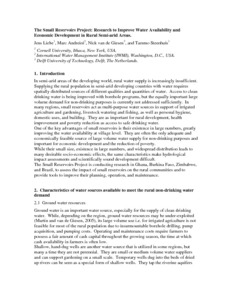Location
Cambridge University Press is part of the University of Cambridge. Our mission is to unlock people’s potential with the best learning and research solutions. Our vision is a world of learning and research inspired by Cambridge.
Our peer-reviewed publishing lists comprise over 53,000 titles covering academic research, professional development, over 350 research journals, school-level education, English language teaching and Bible publishing. This list is growing every year and spans subjects from aesthetics through to zoology, with authors ranging from Shakespeare to English language teaching author, Ray Murphy.
A pioneer in our field, we are committed to supporting innovation in learning and teaching. We publish without boundaries, ensuring our resources are accessible across the globe, in print, online and other digital formats.
We take pride in supporting community programmes across the globe. Staff are encouraged to offer practical help, advice and funding to nurture vital charitable, educational and voluntary partnerships.
Playing a leading role in today's global market place, we have over 50 offices around the globe, and distribute our products to nearly every country in the world. We publish 50,000 authors based in over 100 different countries.
Members:
Resources
Displaying 71 - 75 of 79Science and conservation in African foreststhe benefits of long-term research
The small reservoirs project: Research to improve water availability and economic development in rural semi-arid areas
'Agriculture', in Climate change 2007: mitigation
This contributory chapter of Working Group III to the Fourth Assessment Report of the Intergovernmental Panel on Climate Change (IPCC) outlines the status of climate change mitigation in agriculture and its implications on development, production and consumption trends. It presents regional and global trends in greenhouse gas emissions, as well as future global trends.
At War's End Building Peace after Civil Conflict
All fourteen major peacebuilding missions launched between 1989 and 1999 shared a common strategy for consolidating peace after internal conflicts: immediate democratization and marketization. Transforming war-shattered states into market democracies is basically sound, but pushing this process too quickly can have damaging and destabilizing effects. The process of liberalization is inherently tumultuous, and can undermine the prospects for stable peace.






